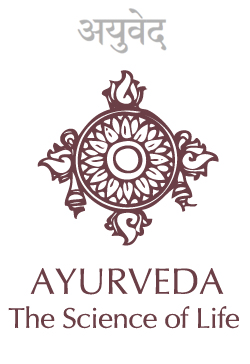 1. What is Ayurveda?
1. What is Ayurveda?
Ayurveda is a natural healthcare system that originated in India. It is a complete medical tradition with highly developed branches in internal medicine, obstetrics, preventive medicine and nutrition. It is also a way of living that helps you to be balanced and empowered to heal yourself. It has a holistic core and purpose: “Mind, body and soul are the three pillars sustaining and composing all individuals in this world, whom are the subject of study in this science of Ayurveda, and the very reason for bringing its knowledge to light.” Caraka Samhita

2. For how long has it been in practice?
Ayurveda dates back to ancient Indian civilisations that prevailed around 5,000 BC. It originated from the Vedas, ancient Sanskrit wisdom passed down from one generation to another for thousands of years. Ayurveda has had a long history since its inception. Today it is a living legacy taught and practised in many universities, hospitals and clinics of the East, while also becoming increasingly popular in the West. Its foundations lie mainly in the Caraka Samhita, a classical text on internal medicine, and in the Sushruta Samhita, a surgical compendium that helped modern surgery develop.
3. How does it work?
To promote an individual’s health and prevent disease, Ayurveda employs all natural resources available, including aromatherapy, cookery, herbs, sound healing, massage, gems, meditation, astrology and yoga. Ayurvedic medicines are predominantly herbal-based. To treat an acute or chronic medical condition, your Ayurvedic practitioner employs medicinal plants that address the cause, pathology and symptoms of disease. Remedies are in the form of powders, pills, jams or teas (some tastier than others).


4. Is it related to yoga?
Throughout time in India, the practice of Ayurveda has gone hand in hand with the practice of Yoga. These two disciplines share many of their principles and stand on similar foundations. Ayurveda focuses on understanding the healing properties and qualities of all earthly substances and activities, as well as the nature of diseases and their treatment, whereas Yoga gives priority to the attainment of spiritual self-realisation. Essentially, Ayurveda and Yoga are sister sciences that are highly developed tools for making our lives healthier, happier and peaceful.
Want to know more about Ayurveda? Explore some some basic concepts here.More practical tips and Ayurvedic wisdom available at any of our Vitalveda classes and workshops.5. What does it offer?
Ayurveda offers powerful health principles and healing practices to look after your body and mind, and enhance your quality of living. An Ayurvedic diet and lifestyle can be very helpful to treat and reduce the risk of many kinds of disorders that are prevalent today, especially those of the digestive, endocrine, immune and nervous system and also of the mind. Ayurveda also offers a set of therapies known as “pancha karma”, which are five types of cleansing therapies considered to be most effective for curing chronic conditions and rejuvenating a person’s entire organism.
6. What is its healthcare approach?
There is a unique approach of personal healthcare in Ayurveda, based on what constitution or body type an individual is. There are eight different body constitutions according to Ayurveda, and these account for our physical and mental characteristics, much like our genetic make-up. Your constitution is determined before you receive Ayurvedic treatment. Depending on what this is, your medicine, diet, exercise and lifestyle requirements are adjusted to suit your individual needs. This approach brings very good results and ensures that you receive what is right for you.

7. Who is it for?
Ayurveda means “the science of life” in Sanskrit. It is an ancient tradition that everyone can practise today. It is particularly helpful to those who want to improve health or resolve a medical condition through a more natural and holistic approach. It provides helpful insights and practical knowledge for people of all ages. As early as a baby in the womb can benefit from it, as prenatal care is a highly developed branch of Ayurveda.
